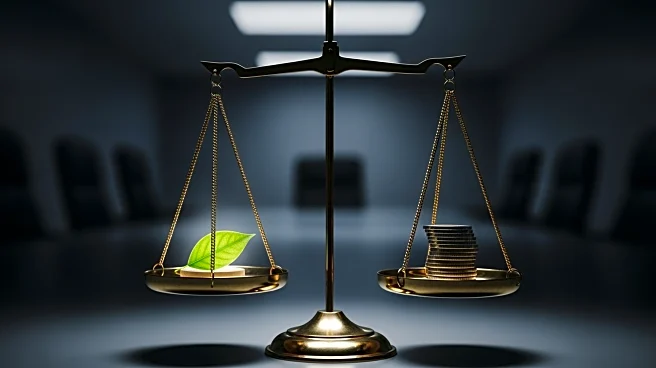What is the story about?
What's Happening?
Chevron is in early-stage discussions to explore opportunities in European regasification terminals as part of its strategy to expand its presence in the liquefied natural gas (LNG) market. This move comes as Europe has reduced its imports of Russian gas following the invasion of Ukraine in 2022, making the U.S. the continent's top LNG supplier. Chevron plans to export 7 million tons per annum of LNG from the U.S. starting in 2026 and has ramped up its LNG trading operations. Freeman Shaheen, Chevron's president of global gas, emphasized the importance of regasification for Europe's national security and mentioned ongoing discussions with European players regarding both existing and new infrastructure.
Why It's Important?
Chevron's expansion into European regasification terminals is significant as it aligns with Europe's efforts to reduce dependency on Russian fossil fuels by 2027. The increased LNG capacity is crucial for meeting the continent's growing energy demands, especially as pipeline gas imports from Russia have decreased. Chevron's strategic focus on the Eastern Mediterranean region and its consideration of floating LNG options for the Leviathan gas field further highlight its commitment to providing critical energy resources. This expansion could strengthen Chevron's position in the global LNG market and enhance energy security for millions in Europe.
What's Next?
Chevron's discussions with European players regarding regasification infrastructure could lead to new partnerships and investments in the region. The company's focus on expanding LNG capacity and strategic partnerships may result in increased energy supply to Europe, potentially influencing energy prices and market dynamics. As Europe continues to diversify its energy sources, Chevron's involvement could play a pivotal role in shaping the continent's energy landscape.
Beyond the Headlines
Chevron's move into European regasification terminals may have broader implications for global energy politics, as it could alter the balance of power in the LNG market. The company's strategic partnerships and expansion efforts could also impact environmental policies and energy transition strategies in Europe, as LNG is considered a cleaner alternative to coal and oil.















